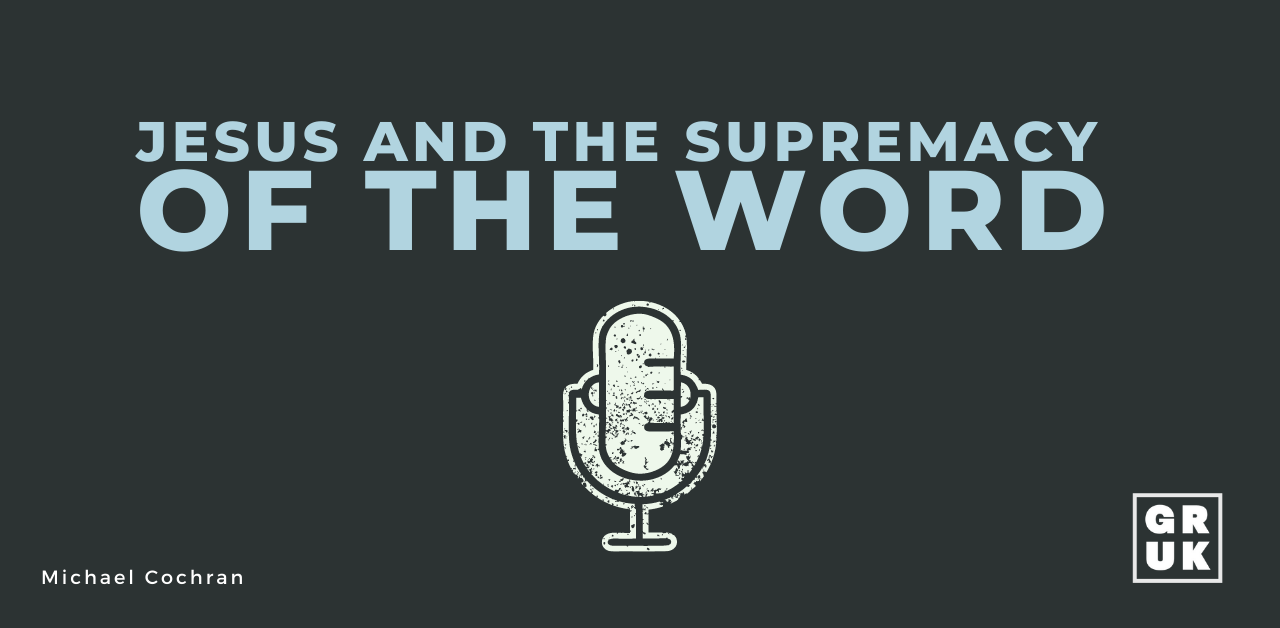Responding to Trauma or how not to misuse Romans 8:28
I bet we can all think of Bible verses that have been either taken out of context or used as the wrong time. Romans 8:28 would be at the top of my list because of the damage it can do when it’s used, not to bolster someone’s faith but to shut down their suffering.
What do I mean? Imagine a situation in which you have someone dealing with a traumatic event. For example, someone living in a war-torn country who has experienced all the horrors of it. Or, imagine parents who have just lost a child. Any number of situations could be multiplied and now you as the Christian come to these people and say
And we know that for those who love God all things work together for good, for those who are called according to his purpose.
Is what we’ve said true? Of course! Is it wise at that moment? No. Because Paul intends it, like James (1:2-4), to build a foundation for a theology of suffering. Paul labours long to make sure you understand that theologically suffering is used by God for our good. James makes this same point that God uses these times to test, and thus improve, our faith. That means suffering has a redemptive purpose. What others use for evil, God uses for good. This is tremendously helpful for our life as we go through difficult times.
But in that situation of something deeply traumatic, the one who says Romans 8:28 can be heard as saying “stop being sad, get over it, remember, God uses this for good.” When stated that way, it brings us back to Job and his counsellors.
Think back with me to Job and his situation. He has lost his children. His wealth. He has lost even his health. His friends respond with, well, Job, you must have sinned to deserve this because we know that God punishes sin.
Are these friends correct? Does God punish sin in the here and now? We just need to read the book of Proverbs to see clearly that God does punish sin in the here and now. Those who lay a trap, fall into it. The criminal who violates the law of the land often ends up in jail.
So while they are technically correct, were they wise? No. That is one of the major points of the Book of Job. His friends, so-called wise men, are in fact, not wise. They completely misunderstand the situation and because of that use good theology in a completely wrong way.
The Story of Joseph
That brings us now to the story of Joseph. In chapter 45 we have the grand reveal. Everything has been moving to this point. Joseph has tested his brothers and found that they have become different (and godly) men. He reveals himself to be Joseph! There is their brother who is back from the dead, standing before them, as the functional ruler of Egypt!
Now imagine that the brothers have a copy of the book of Romans.
“Now Joseph, don’t be mad. Remember, all things work out for your good. Even the 13 years of slavery! So you can’t really punish us if you think about it. Look what God has done?”
Rather what happens is that Joseph responds with the theology of Romans 8:28.
And now do not be distressed or angry with yourselves because you sold me here, for God sent me before you to preserve life. … And God sent me before you to preserve for you a remnant on earth, and to keep alive for you many survivors. So it was not you who sent me here, but God. (Gen. 45:5, 7-8)
I think it bears pointing it out again that it was Joseph who interpreted his situation correctly, not his brothers. It was Joseph who after much prayer and soul searching (one can imagine) now after a long period, reflects and can see what God has done in his life and the life of God’s people through him.
Respond to Trauma
Back to our original idea: how do we respond to trauma?
James tells us to be quick to hear and slow to speak. This was the error of Job’s counsellors. For 7 days they brought comfort with their silence. Then they spoke and compounded Job’s suffering. People who are suffering often need a friend who will listen. We don’t need to have all the answers and we don’t need to fix their suffering. We just need to empathise and seek to understand. This means recognising that suffering is often in the eye of the beholder. It doesn’t do well to tell someone who believes they are suffering that they aren’t suffering! It can feel like an onlooker telling someone with a broken leg to just 'walk it off’.
Build a theology of suffering before we go through suffering. Romans 8:28 and James 1:2-4 are not verses to use while you are going through the valley of the shadow of death, but rather to meditate on as part of the daily course of life. Suffering in this life is a guarantee.
Bring them to Jesus. Jesus we are told is gentle and lowly. Jesus is able to empathise as someone who has suffered. Jesus can redeem our suffering. Jesus will one day wipe away all our tears.
We should take away that in suffering the gospel has much to say. We shouldn’t be afraid of people who are suffering. We should pray for an abundance of wisdom when seeking to minister to those who are suffering. And we should realise that sometimes presence, without words, is more than enough.







